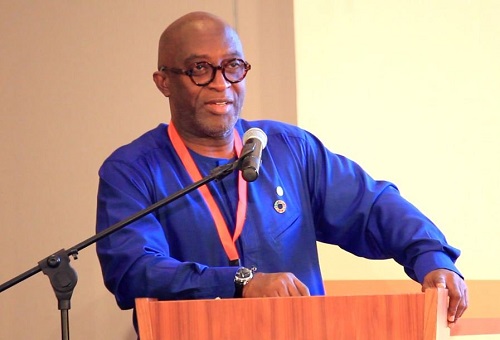The Ghana-Nigeria Business Council (GNBC), has engaged the three government institutions responsible for attracting foreign investors and promoting export in the country to deliberate on trade opportunities and incentives available to Nigerians who do business in the country.
The three government institutions, namely Ghana Investment Promotion Centre (GIPC), Ghana Export Promotion Authority (GEPA), and Ghana Free Zones Authority (GFZA), took the opportunity to elaborate on the various incentive packages available to foreign investors and the various sectors of the economy that have huge investment potential and can guarantee good returns on investment.
Representing the GFZA, Deputy Chief Executive Officer, Kate Djankwei Abbeo, assured the Nigerian Chamber that the GFZA is aware of the good relationship that exist between the two countries and for that reason will be committed to provide members with the required assistance to establish their business within the free zones enclaves and enjoy all the incentives associated.
She outlined some of the incentives that are available to the businesses including a 100 percent exemption from payment of direct and indirect duties and levies on all imports for production and exports from free zones, 100 percent exemption from payment of income tax on profits for 10 years, 100 percent exemption from payment of withholding taxes among others.
“Investors can invest in any sector of their choice a long as it meets the requirement of Act 504 as I explained. However, the focus sectors of the authority are: agro-processing, information and communication technology, ethnic beauty products, textiles/apparel manufacturing and light industry/assembling plant,” she said.
Taking his turn, Director of Research & International Cooperation GEPA, Maxwell Osei-Kusi, indicated that the authority’s goal is to ensure that Ghana’s export trade contributes to accelerated economic growth and through their developmental role, non-traditional exports (NTEs) now contribute significantly to national export earnings.
He therefore informed the chamber that in the area of NTEs opportunities abound in four main sectors namely; agriculture, handicrafts, manufacturing and services. Adding that in each of these sectors has great opportunities with specific invectives that the authority will guide and assist interested investors to establish their business and make good returns on investment.
Representatives of the GIPC on their part also outlined the investment guarantees available for enterprise that members of the Chamber can apply for and enjoy. Among the listed guarantees include bringing in freely convertible currency through authorized dealer banks, easy repatriation of dividends and profits after tax, window for payment in respect of loans servicing for foreign loans, fees for technology transfer, and remittances of proceeds in the sale or liquidation of investment.
The registration requirement with GIPC were outlined as US$200,000 for joint venture with Ghanaian participation, US$500,000 for foreign ownership and US$1 million for trading activities.
However, according to members of the association, Nigeria and Ghana has a long-standing relationship that dates back to pre-independent days, therefore applying policies that affect foreigners from Europe and Americas, such as the US$1 million required as minimum capital for starting a trading business, on Nigerians as well is too harsh and they should be exempted.
Chief Executive Officer of Ghana Nigeria Achievers Award, Comrade Barry Ndu, expressed that there trading is a basic economic activity that exist between the two countries with many Ghanaian leaving in Nigeria doing same as basically no fee requirement, therefore that policies should be amended to consider trade relations especially with Nigerians and other African countries.
The event was the maiden breakfast series organized by the Ghana Nigeria Business Council, aimed at deepening business relations between Ghana and Nigeria, providing adequate and necessary information.










